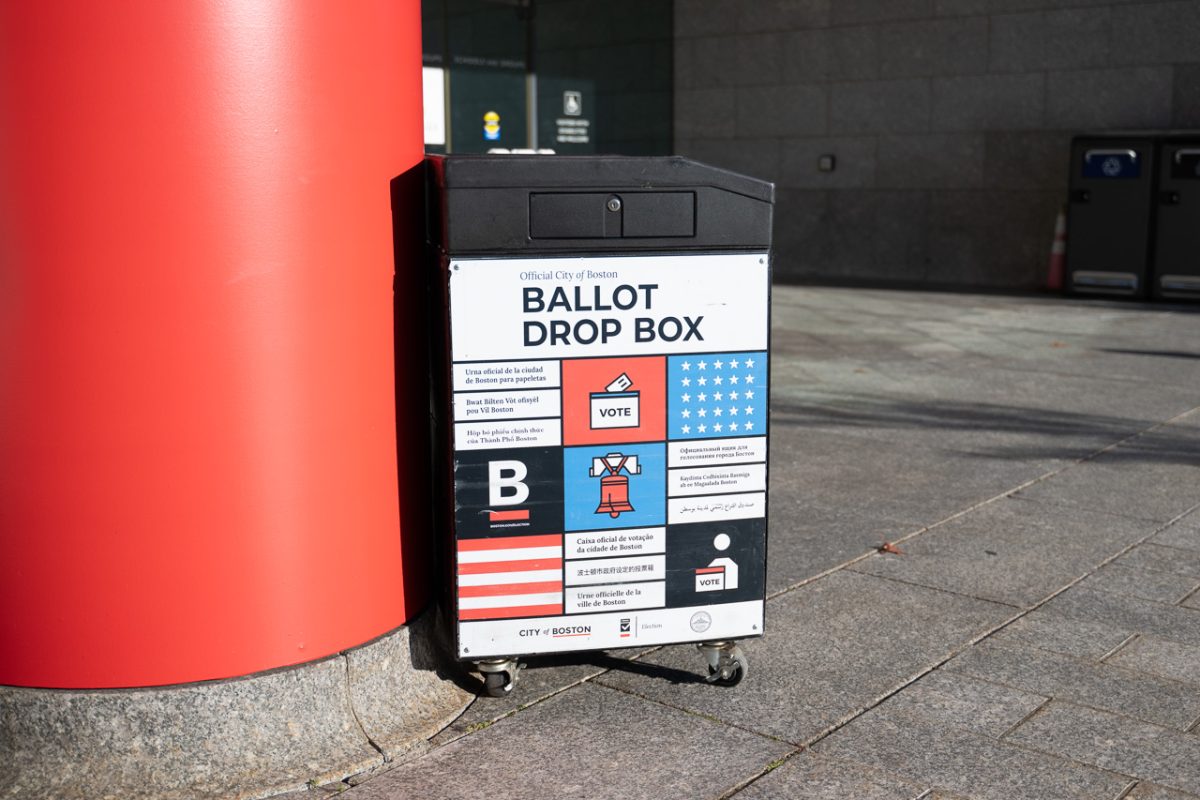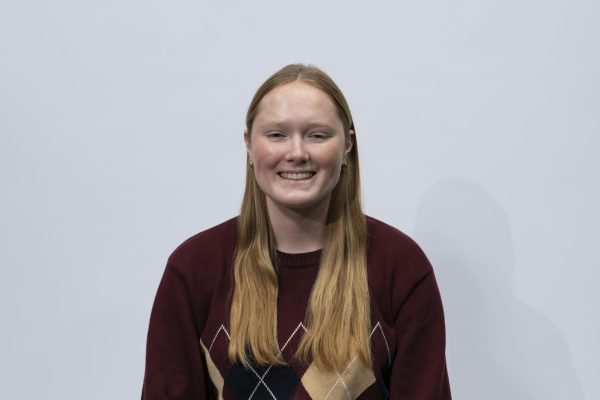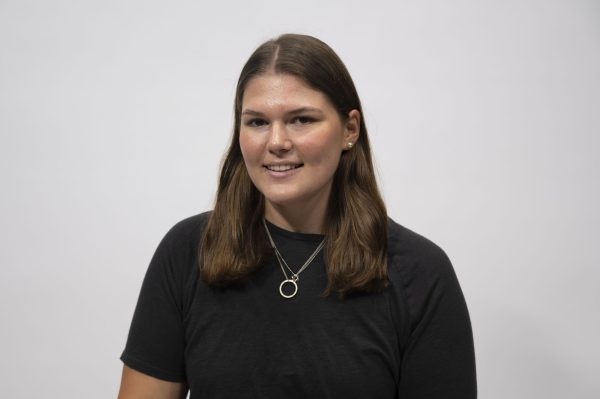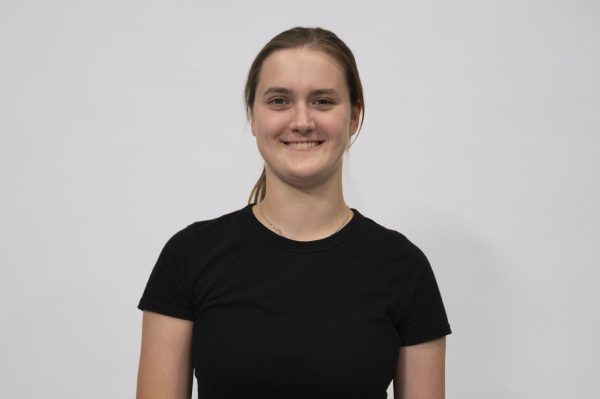Northeastern’s undergraduate student body has a strong preference for Kamala Harris, a poll by The Huntington News found. The survey, which was conducted over two weeks and gathered responses from 264 undergraduate students, found that 85.6% of randomly polled students said they plan to vote for Democratic presidential nominee Harris.
With only three days until election day, the majority of Northeastern undergraduates identify as liberal-leaning and prefer Harris for president, the poll found.
The 2024 election is a large swath of undergraduate students’ first time for voting president, as many students were not old enough to vote in 2020. As a result, get-out-the-vote efforts from both parties have been targeting this new voter base with the hopes of increasing support.
Out of 264 respondents, 68.6% self-identified as Democrats, while more than a quarter, 25.4%, identified as independent.
Poll results from Northeastern’s undergraduate body — which, for years, has been ranked among the most liberal colleges in the country — are vastly different from national polls. A national poll conducted by Emerson College and published Oct. 26 reported that 43.5% of people ages 18-29 identified as Democrats. In the same poll, 30% of respondents identified as Republican and 26.5% identified as independent or “something else.”
The News’ poll found that just 3% of Northeastern undergraduates plan to vote for former President and current Republican presidential nominee Donald Trump.
Registered Democrat Melanie Hammond, a first-year computer science major, said she is not surprised about Harris’ high number preference number.
“Three percent is really low, which is surprising, but I expected the percentage of Kamala Harris voters to be high,” Hammond said.
In The News’ poll, two-thirds of the respondents identified as female. Northeastern reported in its Common Data Set that 11,954 of full-time undergraduates in fall 2023 were female and 9,342 were male.
Polling results were weighted to match the actual gender balance and ethnic makeup of Northeastern undergraduates.
The News’ poll revealed that Northeastern women overall have a strong preference for Harris; a weighted 92.4% of women responded that they plan to vote for Harris, while 1.8% of women said they plan to vote for Trump and 5.8% said they were “undecided.”
First-year environmental studies and international affairs combined major Phoebe Wernborg said she is not surprised that not many young people at Northeastern plan to vote for Trump.
“Donald Trump wants to take away rights that pertain to women, so it makes sense that more women are voting for Kamala Harris over Donald Trump,” Wernborg, a registered independent, said.
By gender, according to weighted results, Northeastern undergraduate men are less likely to vote for Harris than women. In The News’ poll, a weighted 76.3% of male poll-takers responded that they plan to vote for Harris. The poll found that men are almost three-times more likely to be undecided than women, with 15.7% of male students replying that they are “undecided” compared to 5.8% of women.
“The prospect of a female candidate would naturally excite women who have never had a woman president in this country,” Northeastern professor of political science Costas Panagopoulos told The News in an interview. “It’s not surprising to me that that would be the case.”
Out of the 264 students polled, no one self-identified as “very conservative,” while 27.3% of students self-identified as “very liberal.”
Undergraduate students who identified as Black indicated they are the most likely demographic group to vote for Harris, with 100% of polled students responding that they plan to vote for her. However, Black students only made up about 3.8% of The News’ poll, whereas they make up about 5% of the undergraduate student body.
Rachel des Bordes, a second-year economics and computer science combined major who is Black, said she believes that this is because economic, healthcare and criminal policies have a more direct impact on Black people than other racial groups.
“The policies being enacted on both sides tend to affect [Black people] more, so I would hope and expect that there would be more support for something that directly impacts them,” she said.
Conversely, respondents who are Hispanic indicated they were more likely to vote for Trump than any other ethnic group included in the poll, with a weighted 11.5% selecting Trump as their preferred candidate. About 84.6% said they plan to vote for Harris and 3.8% indicated they were undecided.
The American Society Council of Americas reported that Latino voters have a higher ratio of young voters than the rest of the electorate. Thirty-one percent of eligible Latino voters are 18-29 years old, compared to 20% among all races. Historically, Latino voters have leaned Democratic, but their preferences as a voting bloc have shifted dramatically in recent years. In 2020, Joe Biden had less support among Latino voters than Hillary Clinton did in 2016.
The News’ poll found that Asian students were the most likely to be undecided, with a weighted 17.6% of Asian-identifying students responding that they are undecided.
Faryal Siddiqui, a second-year business administration major who is South Asian, said she was surprised to hear those results.
“I’ve been hearing both sides with Asian students,” Siddiqui said. “[Asian] immigrants prefer [Harris], but if they have lived here for a while, I’ve heard people say they prefer lower taxes.”
When asked why a large portion of Asian students may be undecided, Panagopoulos said that cross-pressures — internal discourse that individuals face as a result of beliefs that directly conflict, leading to less political participation — may be the cause.
The poll was administered from Sept. 23 to Oct. 4 via Google Forms by a team of Huntington News reporters at locations across campus, including outside of Marino Recreation Center, Curry Student Center and on Centennial Common. The poll results were then weighted and adjusted by race and gender to be more representative of the entire student body.
When asked why The News’ polling resulted in a slightly skewed gender ratio, Panagopoulos said that the polling ratio did not surprise him.
“There is some evidence that [gender imbalances] happen with survey research generally, but there are all sorts of other characteristics like age,” Panagopoulos said. “Young people in general are notoriously difficult to include in surveys. There [also] could be partisan imbalance.”
Panagopoulos said that Northeastern undergraduates’ overall preference for Harris and majority liberal-leaning political views reflect national trends among young people and residents in Massachusetts.
“The political climate in which they are studying is certainly one that is much more sympathetic to Democratic views and candidacies,” Panagopoulos said.
Staff writer Eli Curwin and news contributor Paloma Welch contributed reporting.
Polling was conducted by Alexis Algazy, Lawrence Brown, Emily Chung, Frances Klemm, Alexa Coultoff, Elli Einset, Jack Masliah, Sarah Mesdijian, Emily Spatz and Paloma Welch.
The following information was collected from respondents in The News’ poll:
- Eligibility to vote in the U.S.
- Political party affiliation
- Which most strongly aligned with their political leaning (Very Liberal, Liberal, Neutral, Conservative, Very Conservative)
- Who they planned to vote for in the 2024 general presidential election
- Year
- Home College
- Gender
- Race/Ethnicity
- Hometown Zip Code
The Huntington News is dedicated to serving the Northeastern University community with original, professional reporting and creating an environment in which student journalists can learn from one another. Support an independent, free press at Northeastern University with your donation today.














